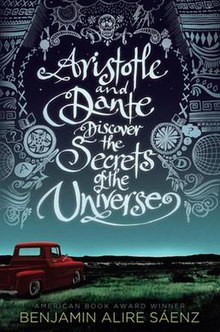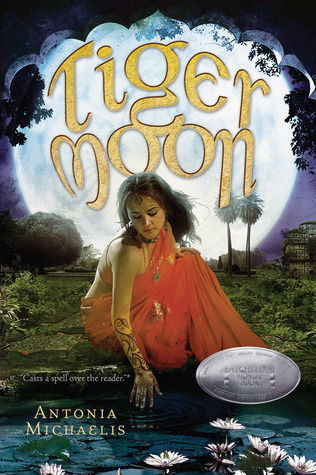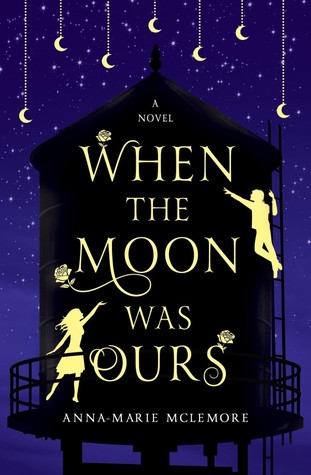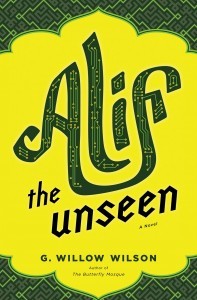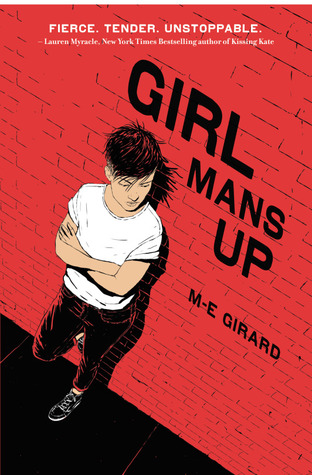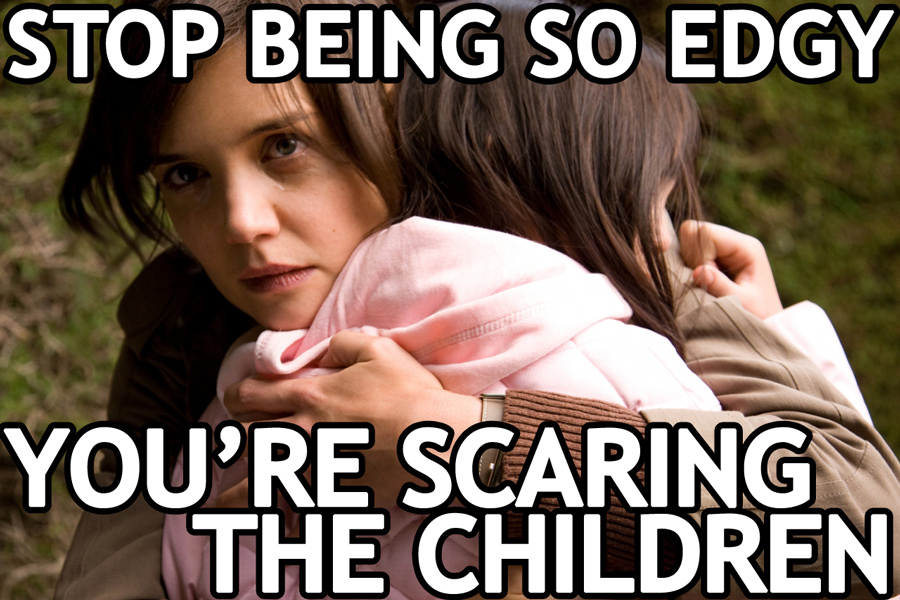The world can be a scary place sometimes.
No matter how loud hate shrieks, love is louder. No matter how much evil there is in the world, there is ten times the amount of goodness behind that.
Since the American election, there has been a lot of fear and anxiety. As a Canadian, the whole situation has left me feeling heartbroken and helpless. I want to march along the streets and #resist, but I know this isn't my battle to fight. Supporting those who are hurting is my duty as a human, however, and something I will gladly do. On Twitter after the election, Justina Ireland, author of Promise of Shadows and Vengeance Bound, started a hashtag on Twitter called #BooksFightHate to promote diverse books written by marginalized authors.
People have since jumped on board to tweet out their favorite books that not only promote diversity, but that fight prejudice. I absolutely love the idea, and while there are a lot of lists out there promoting #BooksFightHate, I wanted to take it one step forward to include a short bio with each title to help people find the books they really connect with.
Most of the recs below are YA, MG, and some adult in the fantasy/sci-fi range. As publishing is constantly moving towards diversity, there will be more titles to add to this list. So if you see something I've missed, make sure to comment below and I'll add it. There has never been a more important time to support and spread the love for marginalized authors.
Books That Fight Hate
1. Something in Between by Melissa de la Cruz
Jasmine is an overachiever with her whole future ahead of her- until she discovers her family's visas expired years ago. Now not only are her college prospects in jeopardy, but her family could be deported if they're discovered. Featuring a Filipino MC and deals with immigrant struggles.
2. The Absolutely True Story of a Part-Time Indian by Sherman Alexie
Junior, a budding cartoonist, decides to take his destiny into his own hands as he leaves the reservation to attend school in an all-white community. Featuring a Native American MC, this book highlights the harsh reality for a lot of Natives living on reservations in North America, from Fetal Alcohol Spectrum and racism.
3. Aristotle and Dante Discover the Secrets of the Universe by Benjamin Alire Saenz
The story of friendship between Ari, who doesn't understand why he's so angry, and Dante, a quirky know-it-all. This is a coming of age story about friendship, family, and identity. Features a subtle, gay relationship between the two characters.
4. The Hate U Give by Angie Thomas
Starr balances life between the poor neighborhood she grew up in and the fancy prep school she attends. But when she witnesses her unarmed friend shot by police, her entire world becomes upended. Inspired by the Black Lives Matter movement.
5. When I Was the Greatest by Jason Reynolds
Ali has never been interested in the violence and drugs in his neighborhood, but his best friend, Noodles, is a ticking time bomb. Features a black MC and dealing with life in a rough neighborhood.
6. A Wish After Midnight by Zetta Elliott
Genna lives in a drug-infested world of poverty, but she's planning an escape to a different life. Until the night she makes a wish and is transported back to Civil-era Brooklyn, where she has to fight through a time still rife with slavery. Features a black MC, and her boyfriend from Jamaica takes time to make Genna appreciate her black skin and curly hair, which is really lovely to see.
7. Time Keeper by Tara Sim
Danny is a mechanic that fixes not only clocks, but time. After moving to a new town, he finds himself falling in love with his assigned apprentice-- who also happens to be the spirit of the tower's clock. Gay romance here. (I'm drooling over this one, not going to lie.)
8. The Girl from Everywhere by Heidi Helig
Nix spends her days traveling everywhere on her father's ship-- if they have a map of it, real or imagined, they can go there. But the one map her father wants more than anything-- the one that will lead him to his love and Nix's mom-- could threaten to erase her existence. Plethora of diversity here, from Nix being half-Chinese, to loads of ethnic culture, as well as LGBT characters.
9. Written in the Stars by Aisha Saeed
When Naila breaks her family's rule by falling in love with a boy, they take her back to Pakistan to reacquaint her with her roots-- as well as to introduce her to the husband they have picked out for her. Featuring a Pakistani main character, this book focuses a lot on arranged and forced marriages and Pakistani culture.
10. Tiger Moon by Antonia Michaelis
In this fantastical Indian fairy tale, Farhad, master of disguises, sets out on a journey with his talking tiger to rescue a princess from marrying a demon king. Rich with Indian culture and myths, this is a true treasure to read.
11. Run by Kody Keplinger
Bo is known for being a delinquent from a delinquent family. Agnes is legally blind and has never stepped farther than the end of her parents' leash. Together, they form an unbreakable friendship. So when Bo asks her to run, Agnes doesn't even question it. Featuring a blind MC and a bisexual MC (woo disability lit!)
12. Gabi, A Girl In Pieces by Isabel Quintero
Gabi's final year of high school will be epic, if she can survive her best friend coming out gay, her other best friend's pregnancy, rape, slut-shaming, and reconciling her "Mexicanness" with her "Whiteness." What can I say about this one? Mexican MC, LGBT, feminism, oh my!
13. Sorcerer to the Crown by Zen Cho
In an alternate history of Britain, the sorcerer royal, Zacharias, ventures to the border of Fairyland to find out why the magic reserves are drying up. On his way he encounters a school for Gentlewitches, where young women have the magic stomped out of them, and meets Prunella, a young woman with a wealth of magical ability. In this book, Zacharias is a freed-slave turned sorcerer and faces a lot of issues with oppression and institutionalized racism.
14. Not Your Sidekick by CB Lee
For Jess, the best way to spite her superhero parents was to take the internship with the local super villain. As a perk, she gets to work alongside her crush, who may just be hiding secrets of her own. Featuring a MC who is half-Chinese, half-Vietnamese, and doesn't feel accepted with either. Also: BISEXUAL REP!!
15. The Education of Margot Sanchez by Lilliam Rivera
Margot has spent years denying her culture and her family in order to fit in at her prep school. But after stealing her father's credit card, she's forced to work in her family's deli to work off the debt. Featuring a Latina MC.
16. We Were Here by Matt de la Pena
After it happened, Miguel was sent to juvi and then to a group home, which he was grateful for. It was better than living at home, where his mother couldn't even look at him. With a plan to head to Mexico, Miguel breaks out and runs for the border, hoping to start over. Featuring a Latino MC, and also deals with a lot of guilt, self-punishment, and hitting rock bottom. It's also nice to get a glimpse of the social services systems.
17. When The Moon Was Ours by Anna-Marie McLemore
Sam and Miel are best friends and as odd as they come. Roses grow from Miel's wrists while Sam paints moons in the trees. A group of witches sets their sites on the roses growing from Miel's wrist, believing their scent can make anyone fall in love, and intend to use Sam's secrets to get them. Featuring: Latina and Italian-Pakistani MCs, also, TRANS REP!
18. The Memory of Light by Francisco X Stork
After a suicide attempt lands her in the hospital, Vicky finds her strength through the other kids she meets in the psych ward. But when a crisis splits them up and Vicky must return back to the situation that made her suicidal, she has to find her own source of strength. This novel is all about mental health representation, and does an excellent job of shining a light down the dark hallway of depression.
19. The Grace of Kings by Ken Liu
Two rebels become friends during the overthrowing of a tyranny. But after the dust settles, they find themselves leaders of opposite factions with very different ideals of how the world should be run. Features a lot of Asian and Middle Eastern mythologies with a culture built on Ancient China.
20. Juliet Takes a Breath by Gabby Rivera
After coming out to her mother, who she is sure will never talk to her again, Juliet leaves the Bronx to spend a summer in Portland interning under her favorite feminist author. Featuring a Puerto Rican lesbian MC, and lots of feminist goodness.
21. God Help the Child by Toni Morrison
Bride's blue-black skin was the reason her light-skinned mother denied her any love, but it doesn't stop her from finding love, success, and confidence. This novel focuses a lot on racism, but also features a survivor of child sexual abuse and shows how it affects their life.
22. Under the Udala Trees by Chinelo Okaparanta
Goodreads Amazon
Inspired by Nigerian folktales and war, Ijeoma, a young Nigerian child, is sent away to escape the civil war where she meets a girl from another ethnic community. The pair quickly fall in love, but must hide their relationship if they hope to survive. Features a lesbian romance, feminism, African characters, as well as looks at religion and homosexuality.
23. The Sun is Also a Star by Nicola Yoon
Goodreads Amazon
Natasha meets Daniel the day before her family was going to be deported to Jamaica. But one day is all it takes to find love. Features a Jamaican and Asian MC, as well as tackles issues of deportation and displacement.
24. Lies We Tell Ourselves by Robin Talley
Goodreads Amazon
In 1959, Sarah is one of the first black students to attend an all-white Jefferson High. Linda is the daughter of the town's most vocal opponents to school integration. Lesbian couples! Mixed race relationship! Plus heavy on racism and segregation.
25. Fat Kid Rules the World by KL Going
Goodreads Amazon
Troy, an obese teenager, befriends Curt McCrae, local punk star and homeless drug addict. Together, their friendship ends up saving them both in ways they didn't know they needed. This book is definite on the fat acceptance.
26. Shadowshaper by Daniel Jose Older
Goodreads Amazon
After a zombie crashes her friend's party, Sierra learns she's part of a community of shadowshapers-- those that connect with spirits through paintings, music, and storytelling. Featuring an Afro-Latina MC with Caribbean-based folklore. Also features a very diverse cast including LGBT characters.
27. Simon and the Homo Sapiens Agenda by Becky Albertalli
Goodreads Amazon
When an email falls into the wrong hands, Simon finds himself as wingman to the class clown Martin, under threat that his secret will be exposed. Or worse, the pen name of the boy he's been flirting with over email could be compromised. Featuring a gay romance, black love interest.
28. Dumplin' by Julie Murphy
Goodreads Amazon
Self-proclaimed fat girl Willow has always been comfortable with her size, until the day she starts a relationship with a handsome jock, and she begins to doubt herself. To regain her confidence, she enters the city's beauty pageant to prove she deserves to be up there as much as any other girl. Features a lot of fat positivity.
29. More Happy Than Not by Adam Silvera
Goodreads Amazon
After his father's suicide, Aaron struggles to find happiness again with the help of his girlfriend and hard-working mom. But when a new guy enters the picture, who makes Aaron feel things he never thought possible, he considers following through with a memory-altering procedure to fix himself. Features suicide, depression, mental health, and deals with homophobia.
30. Americanah by Chimamanda Ngozi Adichie
Goodreads Amazon
Ifemelu and Obinze are teenagers living in Nigeria under a military dictatorship. While Ifemelu managed to immigrate to America, post 9/11 politics prevents Obinze from following. After years, they find themselves reunited in their homeland and their love, and come to face the toughest decisions of their lives. Featuring Nigerian MCs, written by a Nigerian author, and tackles a lot of race issues.
31. Santa Meurte by Cynthia Pelayo
Goodreads Amazon
Life is quiet for Ariana until her father, a federal investigator from Mexico targeting criminal organizations, arrives on her doorstep. After he's involved in a car accident, Ariana begins seeing a veiled skeletal figure asking for her father. Featuring a Latina MC and plenty of Mexican folklore.
32. Lailah's Lunchbox by Reem Faruqi
Goodreads Amazon
The adorable story of Lailah, a 10-year-old Muslim who is very excited to join her family in her first Ramadan. She just needs to figure out how to explain it to her non-Muslim classmates. Such a cute story featuring a Muslim MC and discusses Islam and Ramadan. This is a picture book, but worth the read.
33. The Story of Maha by Sumayya Lee
Goodreads Amazon
After her parents are killed during a political rally, Maha goes to live with her Indian grandparents. She learns how to wind around the strict boundaries of her Muslim community as she develops into a rebellious teenager. Book is set in a South African Indian Muslim community, and features an Indian MC.
34. Alif the Unseen by G Willow Wilson
Goodreads Amazon
In the Middle East, a young Arab-Indian hacker by the alias of Alif shields his clients from surveillance groups and tries to stay out of trouble. But when the woman he loves begins courting the head of the state's security, Alif's computer is compromised and he flees underground for his own, and his client's, safety. A POC MC and features Islam in a positive light, also showcasing some Islamic myths and folklore.
35. The Moor's Account by Laila Lalami
Goodreads Amazon
An alternative history account of the Narvaez expedition which would leave only four survivors, one of which was Mustafa al-Zamori, a Moroccan slave and the first black explorer of America. POC MC and written by a Moroccan author.
36. The Unintentional Time Traveler by Everett Maroon
Goodreads Amazon
Jack agrees to try an experimental clinical trial to cure his epilepsy, but instead finds himself in the body of a girl--Jacqueline-- from 1920s era. Disability rep, as well as tackles identity and how much our gender affects who we are.
37. Homegoing by Yaa Gyasi
Goodreads Amazon
Effia and Esi, sisters born in separate villages, end up leading very different lives. While Effia is married to a slaver and lives in luxury, Esi works as a slave in the palace dungeon beneath her, before being shipped off as a slave to America. This novel follows the sisters' descendants 300 years and illustrates how slavery and colonialism shaped America and Ghana. The author was born in Ghana as well.
38. Does My Head Look Big in This by Randa Abdel-Fattah
Goodreads Amazon
Everyone has a reaction when Amal decides to wear the hijab full-time. Dodging prejudice and fending questions from her friends and teachers, she still intends to attract the cutest boy at school. Islam rep! Also, love how it tackles stereotypes and misconceptions.
39. Girl Mans Up by M-e Girard
Goodreads Amazon
All Pen wants is to be the kind of girl she wants to be, but for some reason everyone thinks the way she looks and acts means she wants to be a boy. Portuguese MC, lesbian MC, and tackles a lot about gender identity. I can't wait to read this one!
40. If I Was Your Girl by Meredith Russo
Goodreads Amazon
Amanda transferred schools to get a new life, but when she begins to fall for Grant, she fears how he'll react when he learns of her past... and that her name used to be Andrew. Trans rep!! Also, #ownvoices
41. Songs that Sound Like Blood by Jared Thomas
Goodreads
Roxy heads to the big city for a new start and to study music. Singing for her dinner is soul crushing, but her newfound crush on Ana might make it worth it. Indigenous and Maori MCs, as well as a lesbian romance.
42. On The Edge of Gone by Corrine Duyvis
Goodreads Amazon
Denise, her mother, and her sister are supposed to head for a shelter to wait out an incoming comet blast. On the way they encounter a generation ship leaving to colonize new worlds, but all passengers must have a skill to contribute, and Denise fears her autism may hold them back. Very diverse cast with half-black autistic MC, lesbian, Muslim, bisexual trans, and Jewish characters, to name a few.
43. Sister Mine by Nalo Hopkinson
Goodreads Amazon
Conjoined twins Abby and Makeda were separated by surgery that left Abby with a limp and Makeda cut off from the magic her sister possesses. Makeda moves on to start a new life of her own, but she must reconcile with her sister after her father disappears in order to save him. Urban fantasy with Caribbean mythology written by a Caribbean author.
44. All We Have Left by Wendy Mills
Goodreads Amazon
Jesse finds herself caught up in the wrong crowd after her brother passes away in the September 11 attacks, and one momentary hate-filled decision turns her life upside down. Alia is a proud Muslim who finds herself in the Two Towers when the plane hits. Trapped inside the burning building, Alia meets a boy who changes her life. An authentic Muslim character, and presents the hatred and prejudice that Muslims have faced since 9/11.
45. Throne of the Crescent Moon by Saladin Ahmed
Goodreads Amazon
In the midst of a brewing rebellion, supernatural murders cause unrest through the Crescent Moon Kingdoms. Doctor Adoulla Makhslood, “the last real ghul hunter in the great city of Dhamsawaat,” his young assistant, and a woman with the power of the lion-shape set out to learn the truth behind the killings. Set in the Middle East during the Islamic Golden Age.
46. George by Alex Gino
Goodreads Amazon
When people look at George, they see a boy, but she knows she's a girl. She just has to find a way to show everyone else that, too. Middle grade book featuring a trans MC! A must have!
47. Labyrinth Lost by Zoraida Cordova
Goodreads Amazon
Alex is a bruja, one of the most powerful witches in her generation, and hates it. While attempting a spell to rid herself of her powers, it backfires and her family vanishes, and she must travel to Los Lagos, an in-between land, to save them. Latinx culture and folklore, cast of POC characters, and an #ownvoices book featuring a writer born in Ecuador.
48. Radio Silence by Alice Oseman
Goodreads Amazon
Frances has always been a study machine with one goal-- elite university. But when she meets Aled, the shy boy behind her favourite podcast, he reveals a side to Frances that she thought she'd locked away. Bisexual and biracial MC!
49. Behold the Dreamers by Imbolo Mbue
Goodreads Amazon
Jende has come to America to provide a better life for his family, and can't believe his luck ending up as a chauffeur for the Lehman Brothers. But the cracks in the American dream begin to show when the company goes under. Featuring the Jonga family, who are West African, and features the immigrant struggle as they struggle to become citizens.
50. It Ain't So Awful, Falafel by Firoozeh Dumas
Goodreads Amazon
Zomorod is the new kid on the block, for the fourth time. With a new school, she plans to change her name to Cindy to fit in. But it's the mid-70s, and Iran is making headlines with protests, revolution, and hostage takings, and the anti-Iran sentiments are making it difficult to feel at home in her own country. Featuring an Iranian MC and examines prejudice through a middle grade lens.




